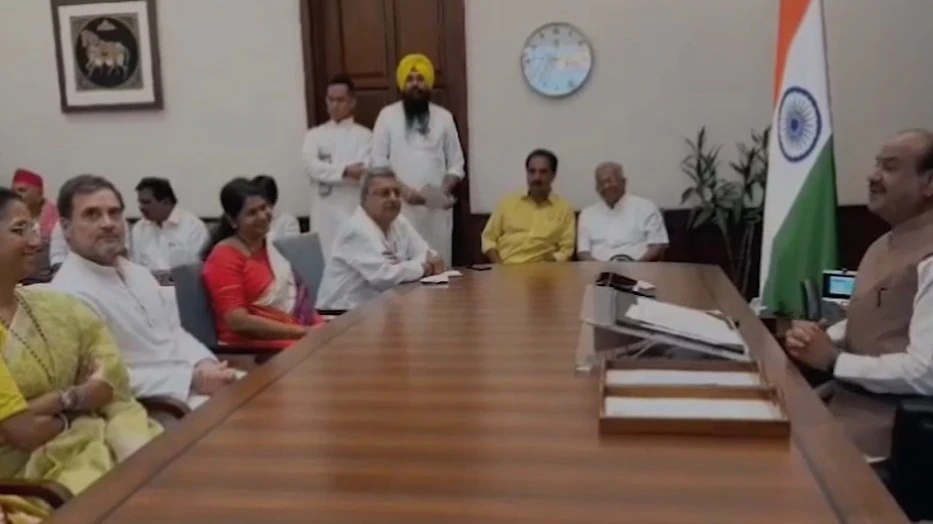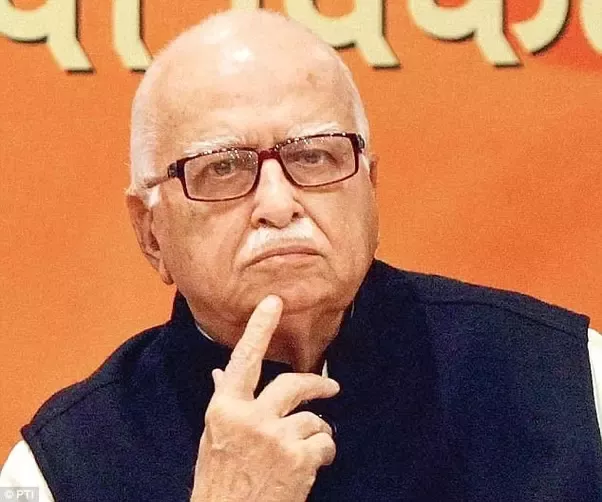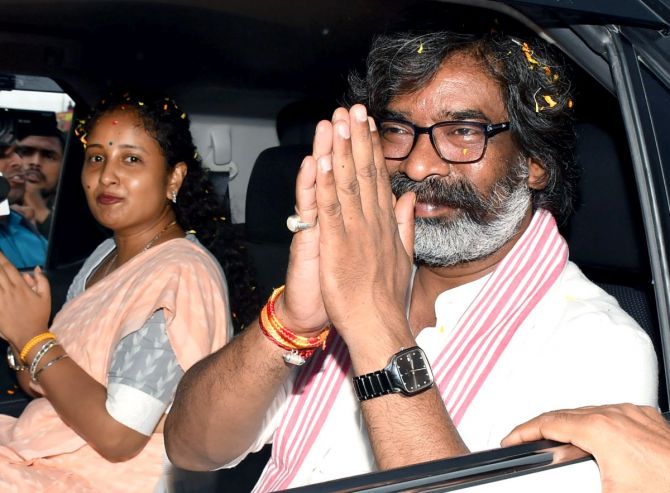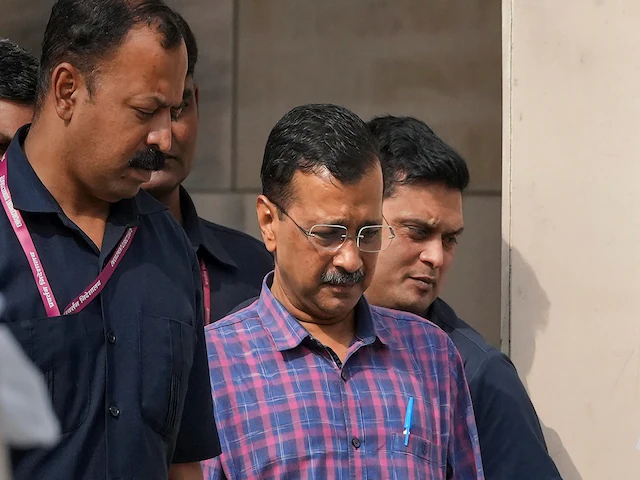Key Points:
- Rahul Gandhi criticizes Lok Sabha Speaker Om Birla’s remarks on the Emergency.
- Gandhi, along with other opposition leaders, met Birla to express their displeasure.
- The Speaker’s comments and the resolution condemning the Emergency led to protests from Congress.
Rahul Gandhi criticizes Lok Sabha Speaker Om Birla’s remarks on India’s Emergency era, highlighting political tensions and historical sensitivities. Learn about the opposition’s unified stance and the broader implications for Indian democracy today.
Rahul Gandhi criticizes Lok Sabha Speaker Om Birla’s remarks regarding the Emergency, calling them “clearly political.” During a meeting with Birla on Thursday, Gandhi voiced his disapproval, suggesting the reference to the Emergency could have been avoided. Congress General Secretary KC Venugopal shared these details with reporters after the meeting.
The courtesy call included other prominent opposition figures such as Samajwadi Party MP Dimple Yadav, RJD MP Misa Bharti, and NCP leader Supriya Sule.

Background on the Emergency
The Emergency, imposed by then Prime Minister Indira Gandhi from June 25, 1975, to March 21, 1977, is a significant and controversial period in Indian history. It was a time when civil liberties were suspended, the press was censored, and many opposition leaders were imprisoned. The government justified the Emergency by citing threats to national security and the need to implement certain economic and social reforms. However, critics argue that it was used to suppress political dissent and maintain Indira Gandhi’s hold on power.
Rahul Gandhi’s Position
Rahul Gandhi criticizes the mention of the Emergency in the Lok Sabha, underscoring the sensitivity of this topic within the Congress party. His criticism is rooted in the belief that the reference was politically motivated and could have been avoided. Gandhi emphasized that such remarks detract from more pressing current issues that Parliament should address.
Opposition’s Response
The meeting with Speaker Birla was attended by key figures from the opposition, including Samajwadi Party MP Dimple Yadav, RJD MP Misa Bharti, and NCP leader Supriya Sule. Their presence signifies a united front among the opposition parties on this issue. Venugopal stated that the opposition leaders felt it was important to convey their displeasure collectively, reinforcing their stance against what they see as politically charged statements.
Speaker Om Birla’s Actions
On Wednesday, Speaker Om Birla, upon being re-elected, read out a resolution condemning the imposition of the Emergency on June 25-26, 1975. Birla observed a two-minute silence for those who lost their lives during this period, stating that democratic values and freedom of expression were severely oppressed. This act led to immediate protests from Congress members, who rushed into the well of the House, forcing an adjournment.
Historical Significance and Political Implications
The Emergency remains a contentious chapter in India’s history. For many, it represents a dark period when democratic norms were subverted. For others, particularly within the Congress party, it is a complex legacy tied to Indira Gandhi’s leadership and the socio-political context of the time. The recent comments by Speaker Birla and President Murmu have reignited debates about this period, highlighting its lasting impact on Indian politics.
President Droupadi Murmu’s Address
Adding to the controversy, President Droupadi Murmu, in her address to a joint session of Parliament, called the Emergency the “biggest attack” on the Constitution and the “darkest chapter” in India’s history. Her remarks align with the BJP’s stance, which has consistently condemned the Emergency as an assault on democracy.
Congress’s Reaction
The Congress party’s reaction to these comments has been one of strong disapproval. The party argues that while the Emergency was a regrettable period, it has been extensively debated and acknowledged in Indian politics. Congress leaders contend that continually bringing it up serves to divert attention from current issues and undermines the party’s efforts to move forward.
Broader Political Context
The renewed focus on the Emergency comes at a time when Indian politics is highly polarized. The BJP, currently in power, uses the Emergency as a historical reference point to criticize the Congress and reinforce its narrative of championing democracy and civil liberties. Meanwhile, the Congress is striving to present itself as a progressive and forward-looking party, which necessitates addressing its past while focusing on contemporary issues.
Rahul Gandhi criticizes Speaker Om Birla’s remarks on the Emergency, highlighting the enduring sensitivity and political significance of this historical period. The opposition’s unified response underscores their collective stance against what they perceive as politically motivated statements. As Indian politics continues to evolve, the legacy of the Emergency will likely remain a contentious and influential topic in the nation’s political discourse.
For further insights and comprehensive content, please visit our homepage



